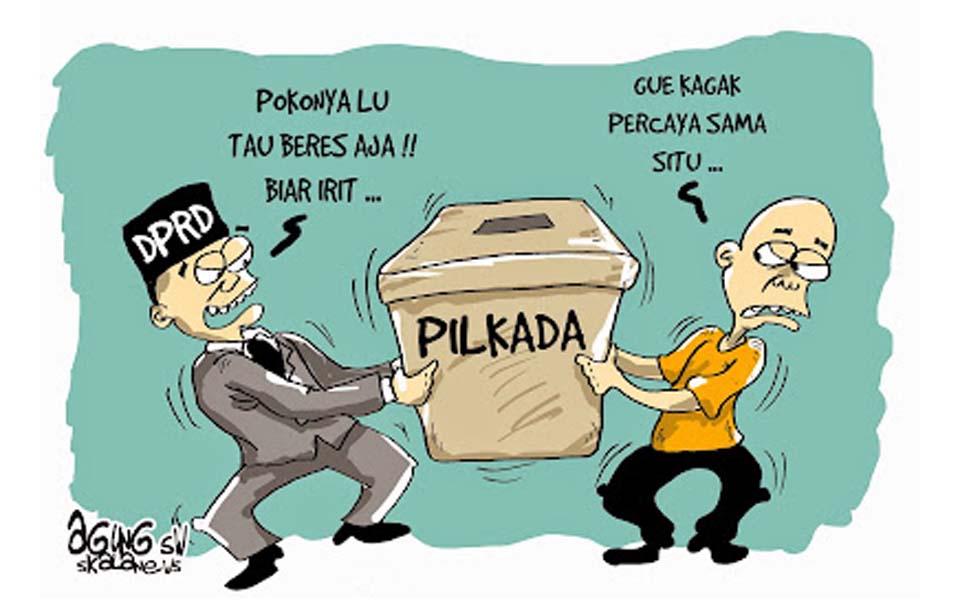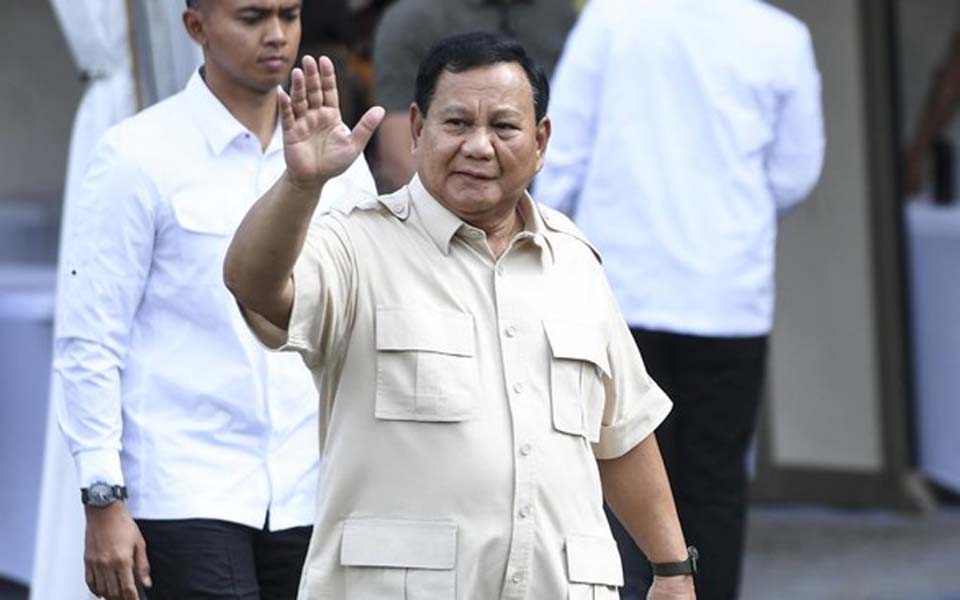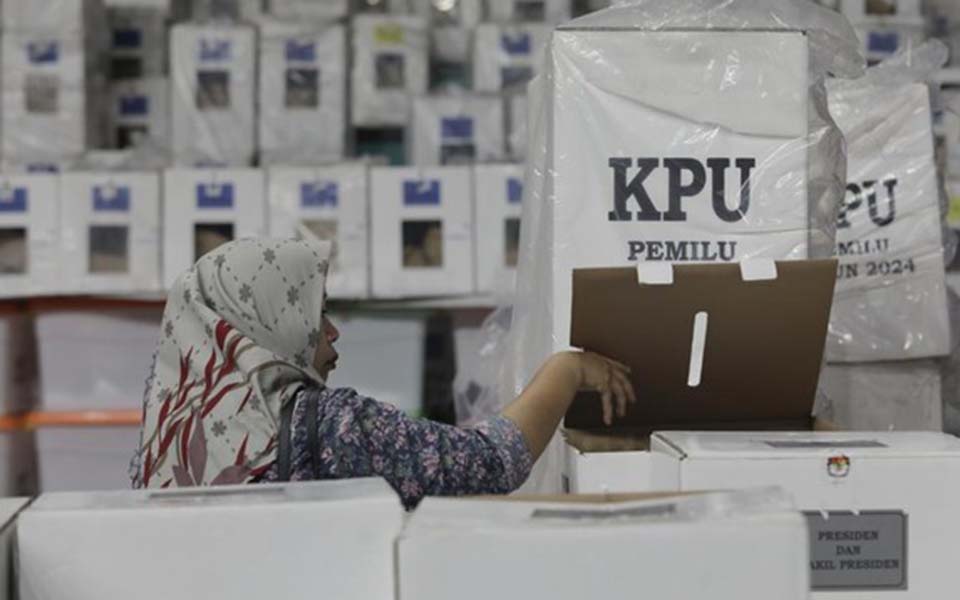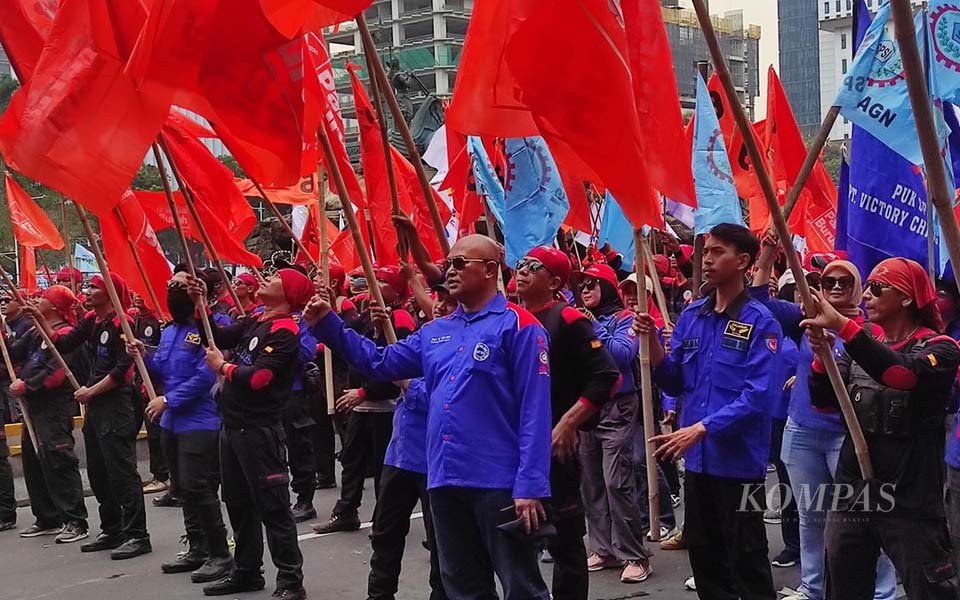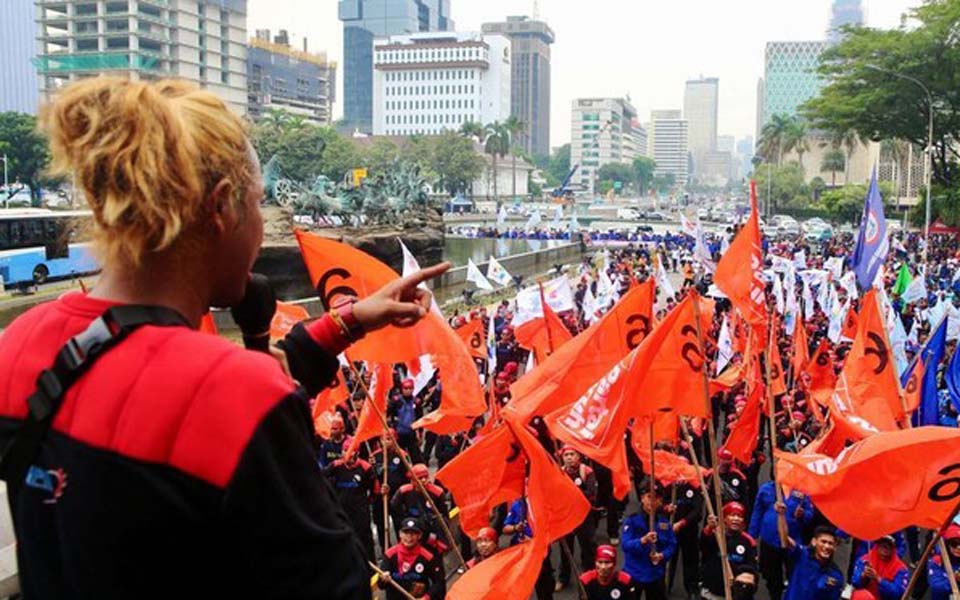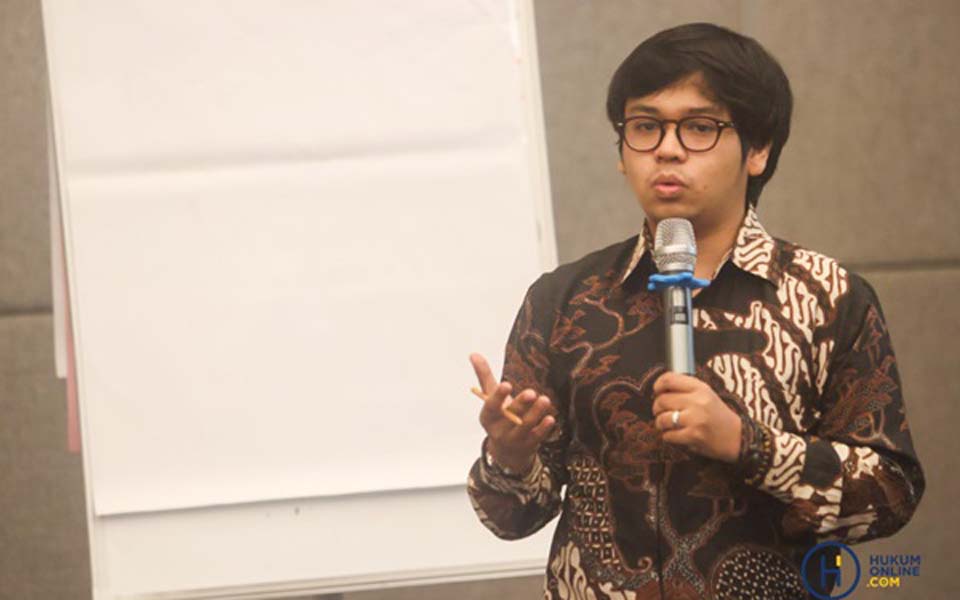Jakarta – Opposition by the parties or the political parties outside of the administration against legislation which does not side with the people is seen by many as a joke. The reason being that they have taken an inconsistent position on deliberations at the House of Representatives (DPR) and have not fully mobilised this opposition.
On Monday October 5, the DPR ratified the Draft Omnibus Law on Job Creation in the midst of a wave of public protests. Once again the coalition of political parties supporting President Joko “Jokowi” Widodo in parliament defeated the opposition without any meaningful fight.
Only the Islamic based Justice and Prosperity Party (PKS) and the Democrat Party factions in parliament opposed the draft law. Indeed since Widodo proposed the draft law it has been these two factions which have been most noisy in declaring their opposition.
Nevertheless, the two parties withdrew from the DPR’s Omnibus Law working committee on the grounds that amid the Covid-19 pandemic they wanted to focus on helping the ordinary people. Both parties however later returned to the working committee: the PKS in May and the Democrats in August.
When the PKS and the Democrats withdrew from the working committee, the Golkar Party – the main supporters of the law – maneuvered by organising political safaris to meet with various political forces. This was led by Golkar General Chairperson Airlangga Hartarto.
Golkar met with Democrat Party Chairperson and former president Susilo Bambang Yudhoyono, Greater Indonesia Movement Party (Gerindra) Chairperson and Defense Minister Prabowo Subianto and with PKS President Sohibul Iman. Also not left out, they also met with leaders of the country’s two largest Islamic mass organisations, Muhammadiyah and Nahdlatul Ulama
During deliberations on the law at the House, the PKS and the Democrats did not propose many changes to the draft law, let alone call for it to be dropped.
Only when it was time to make a decision on the law at the DPR’s Legislative Body (Baleg) did the two factions raise any loud objections. At the DPR’s plenary meeting to enact the law, the PKS and the Democrats again declared the opposition. The party with the Mercy logo added spice to the opposition by staging a walking out.
This had little impact on the Omnibus Law which was still passed into law.
A similar thing happened during the deliberations on other controversial laws such as the revisions to the Corruption Eradication Commission (KPK) Law, which was widely rejected by the public and ended in massive demonstrations.
The political parties outside the government towards the end of Widodo’s first term, namely Gerindra, the PKS and the Democrats, did not oppose the draft revisions to the KPK law although they made a lot of noise in the mass media. During the deliberations on the law in the House, they only proposed notes of concern in their support for the draft KPK law.
This was repeated during the deliberations on the Draft Mineral and Coal Mining Law (RUU Minerba) this year. The draft law, which has been postponed in 2019, was suddenly deliberated and taken to a DPR plenary meeting.
During Widodo’s second term in office, three political parties have been outside the government, namely the Democrats, the PKS and the National Mandate Party (PAN). With the RUU Minerba however, only the Democrats rejected it. The draft law was also ratified.
Al-Azhar University political observer Ujang Komarudin says that the deliberations on these controversial draft laws are evidence of just how weak the opposition is in Indonesia. Instead of offering alternative solutions, the opposition stead busies itself with political acrobatics.
“The most disastrous was the KPK law, all of the fractions agreed. This opposition coalition is truly a joke. If there are no checks and balances there will be abuse of power”, Komarudin told CNN Indonesia on Tuesday October 6.
Komarudin believes there are two factors causing the parliamentary opposition to be so weak. First, the strength of Widodo’s coalition is just too great with as many as 427 seats in the DPR or 74.3 percent of the vote.
The second reason is that opposition parties are not based on any clear ideology. Political parties in Indonesia, he said, are built based on pragmatism.
“Just look at Gerindra before, endlessly berating Jokowi, now they’re defending him to the bitter end. Not based on an ideology, but pragmatism. This is what happens in this comic country”, he said.
Taking to the streets
Contacted separately, Forum of Concerned Citizens for Indonesia’s Parliament (Formappi) researcher Lucius Karus says that the current opposition parties have no clear concept.
“They just say they reject things without appearing to make any persistent effort to assert their position, it’s just a political position, just lip service”, Karus told CNN Indonesia on Tuesday.
Karus made a comparison with the role of the government opposition during Susilo Bambang Yudhoyono’s administration. Then, he said, the opposition succeeded in playing an important role because it was merged with the social movements.
The current opposition does not join in with or take to the streets along with the waves of protests opposing government policy, they just busy themselves rejecting things at meetings in parliament.
“The opposition in the DPR operates by itself, the public operates by itself. This fragmentation is what the government coalition likes because it means that the pressure on them isn’t very high”, asserted Karus.
The enactment of the Omnibus Law has triggered a wave of protests all across the country. Worker, student and activist organisations are protesting the new law which is seen as harming the ordinary people and the working class. (dhf/arh)
[Translated by James Balowski. The original title of the article was “Manuver Oposisi di Era Omnibus Law: Pragmatis dan Tak Gigih”.]







